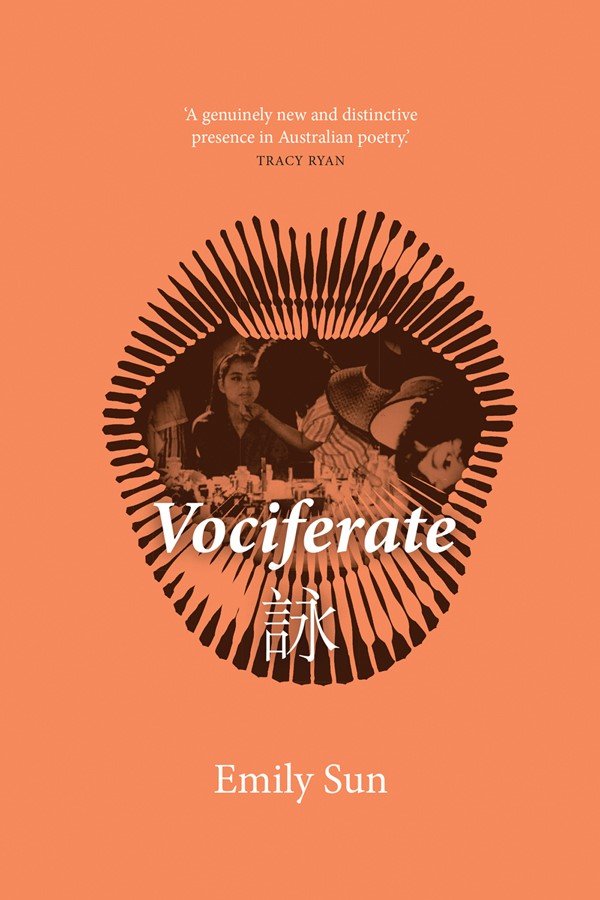Review: Vociferate 詠 by Emily Sun
*A version of this post was first published by Underground Writers September 12, 2021
Title: Vociferate 詠
Author: Emily Sun
Genre: Poetry
Publisher: Fremantle Press
Released: June 2021
Emily Sun storms onto the poetry scene with this bold and intelligent debut filled with rage and wit. Inspired by Asian-American feminist writers, Sun resists Orientalism and explores what it means to belong across geo-political and social boundaries. From its bright cover to every emotion evoked by this collection, Vociferate demands your attention and won’t let you go once it’s got you.
It is somewhat daunting to review a collection like this. Even with careful consideration, there’s a feeling that I’ve most definitely missed things. Sun’s poetry is multifaceted. Although mostly in English, the poet uses Cantonese and Mandarin through her poems and jaunts into Latin and Greek among other languages, particularly when referring to religion. There are references to popular culture, classical texts, religion, language, history and so much more. This is the sort of book you keep Google handy for, researching the references and rereading it afterwards with an extra layer of meaning and understanding. It’s intelligent and particular—each word and reference has clearly been chosen with obvious care and deliberation.
One of the recurring themes of Sun’s poetry is the contrariness and irony of so much of Eurocentric culture. In “June is not winter” she writes:
sixth month named for Juno
goddess of marriage
architect of a modern institution that
outlaws incest
yet mother of inbreds: Mars, Minverva and Vulcan
Likewise, in “Brief Overview” famous thinkers such as Nietzsche, Marx, Freud and Darwin are called out for their hypocrisy and the ways in which their legacies have been twisted to suit dominant powers. In doing so, Sun questions the very basis of our beliefs and ‘common sense’.
The collection’s namesake, “Vociferate” is a powerful, angry, and heartfelt poem that pulls together both the frustrations of racism and sexism, while poems like “Orientalist Me” shine a spotlight on tokenism and the harmful and unrealistic stereotypes perpetuated by the media. Meanwhile, poems like “Tour Guide” tackle systematic racism and racism in power structures such as law enforcement. Throughout the collection, Sun hones in on how racism is weaved into every facet of life.
Vociferate is a wonderfully complex and powerful collection. It’s not a quick read, but it opens up a rabbit hole of history, philosophy, and cultural revolution. If the role of literature is to place a reader in someone else’s shoes, then Sun’s collection is an open and honest reflection that lays her emotions and thoughts bare. It’s not an easy read. Sun asks you to work for understanding, asks you to actively participate in the poetry beyond just reading or speaking it aloud, but it’s worth it. It took me back to my days of studying literature, where every reference was pulled apart and interrogated, and in doing so a broader history and understanding of the world was revealed. This is an ambitious, genuine, and heartfelt anthology that invites the reader to embark on a journey through time, space, and politics.

